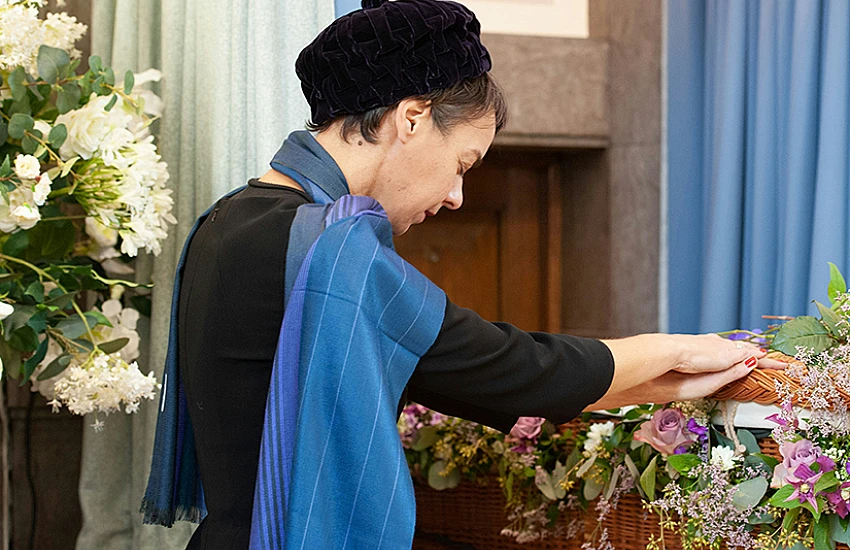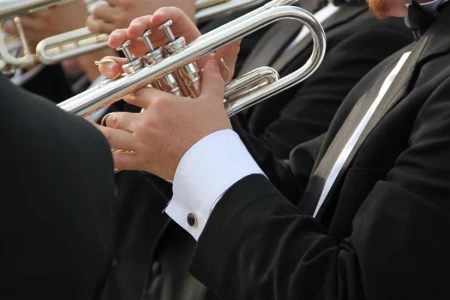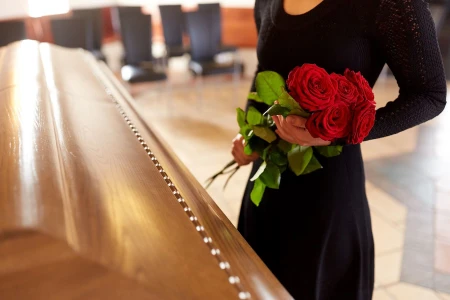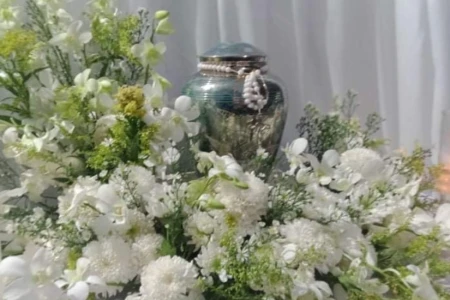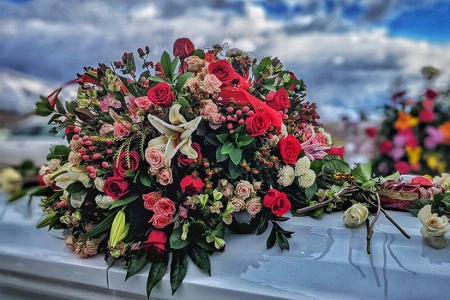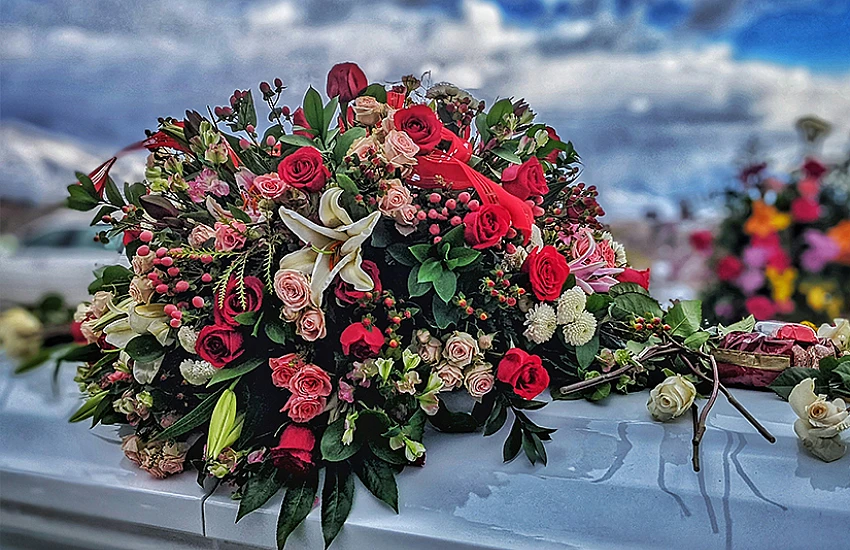Table of Contents
There comes a moment in everyone's life when we must say goodbye to a loved one. A funeral is a time of deep sorrow, reflection, and grief, but it is also an opportunity to honor the life of the deceased. During this difficult time, the role of the funeral ceremony master is particularly important. This is the person who not only leads the ceremony but also supports the family in their darkest moments. A funeral ceremony master acts as a true guide through the mourning process, combining various elements of the ceremony with respect and empathy, and adapting them to the family's individual needs. In this article, we take a closer look at this important role, the responsibilities it entails, and the skills necessary to conduct such a significant event with dignity. Let’s discover how a funeral ceremony master influences the ceremony and why their presence is so important for those who remain.
Who is a Funeral Ceremony Master?
A funeral ceremony master, often referred to as a celebrant, is responsible for conducting the funeral service.
This may be a clergy member, but increasingly, secular individuals trained in funeral ceremonies are fulfilling this role.
Their primary goal is to ensure that the ceremony is conducted with dignity, respect, and in a supportive atmosphere for the mourners.

Key Responsibilities of a Funeral Ceremony Master
Planning the Ceremony
The funeral master works with the family to plan the details of the ceremony. This includes choosing the location, music, readings, and arranging the overall structure of the event.
A good funeral master adapts the ceremony to the family’s specific needs and traditions, ensuring that it honors the deceased's life and beliefs.
Leading the Ceremony
On the day of the funeral, the master leads the service by welcoming guests, introducing speakers, and ensuring that the ceremony follows the agreed plan.
They also explain the course of the ceremony, which is particularly helpful for guests unfamiliar with such events.
As one of the first people mourners interact with, the funeral master's demeanor and communication style have a significant emotional impact.
Emotional Support
Beyond guiding the ceremony, the funeral master offers emotional support to the family.
Listening to stories, sharing memories, and offering practical advice are crucial aspects of their role.
Coordinating with Others
The funeral master collaborates with funeral home staff, musicians, and other participants to ensure that every aspect of the ceremony runs smoothly.
Flexibility and crisis management skills are essential to handle unexpected challenges.
Religious vs. Secular Ceremonies
The master must be prepared for different types of ceremonies.
In religious services, they may read sacred texts, lead prayers, and conduct rituals.
In secular ceremonies, there is more freedom to personalize the service, making it more meaningful for the family.
Essential Skills of a Funeral Ceremony Master
Communication
Clear and empathetic communication is key. The master must understand the family's needs to create a personalized and meaningful ceremony.
Empathy and Compassion
Understanding and supporting the emotional needs of mourners is a core part of the role. Empathy helps build trust during difficult times.
Organizational Skills
Coordinating all elements of the ceremony requires excellent planning and time management skills.
Knowledge of Traditions
Familiarity with various cultural and religious funeral traditions ensures that the ceremony is respectful and meaningful.
Stress Management
Working in the funeral industry can be emotionally demanding. A funeral master must handle stress effectively to provide professional support.
Why is the Role of a Funeral Ceremony Master Important?
The funeral master plays a key role in creating an atmosphere of respect and remembrance.
By harmonizing different elements into a cohesive and meaningful ceremony, they help the family honor their loved one while providing comfort and support.
A well-conducted ceremony not only eases the grieving process but also offers a dignified farewell that remains in the memory of those who attend.

How to Become a Funeral Ceremony Master
While the profession is not regulated in every country, many organizations offer training and certification in this field.
In Poland, aspiring funeral masters should invest in courses that cover both the practical and theoretical aspects of funeral ceremonies, grief psychology, and ethics.
Interpersonal and emotional skills are crucial, and these can be developed through practical experience and working closely with people.

FAQ – Frequently Asked Questions
1. Who is a funeral ceremony master?
A funeral master is responsible for conducting the funeral service, ensuring it is respectful and dignified. They may be clergy or secular professionals trained in funeral ceremonies.
2. What are the main responsibilities of a funeral ceremony master?
Their duties include planning and organizing the ceremony, leading the service, providing emotional support, and coordinating with other participants, such as funeral home staff and musicians.
3. Does a funeral master always have to be a clergy member?
No. Many secular individuals, after appropriate training, also perform this role. The choice depends on the family's preferences.
4. What skills are essential to become a funeral ceremony master?
Key skills include communication, empathy, organization, knowledge of funeral traditions, and stress management.
5. What training is available for future funeral ceremony masters?
Various courses offer knowledge about organizing funeral ceremonies, grief psychology, ethics, and traditions. It is advisable to choose programs offered by reputable institutions.
6. Can a funeral master adapt the ceremony to the family's needs?
Yes. A good funeral master customizes the ceremony to reflect the family's wishes, including the choice of readings, music, and specific ceremonial elements.
7. What elements can be included in a funeral ceremony?
Ceremonies can include prayers, memories, music, floral tributes, and rituals based on the family's traditions or cultural customs.
8. What challenges might funeral masters face during a service?
Challenges include handling emotional reactions, unforeseen situations during the ceremony, and the need to adapt to changing circumstances.
9. What is the role of a funeral master in religious ceremonies?
They conduct prayers, read sacred texts, and guide religious rituals, ensuring the ceremony aligns with the faith’s traditions.
10. How can one find a good funeral ceremony master?
Families can consult with funeral homes that usually have a list of experienced funeral masters. Recommendations and reviews from others who have used their services are also helpful.

